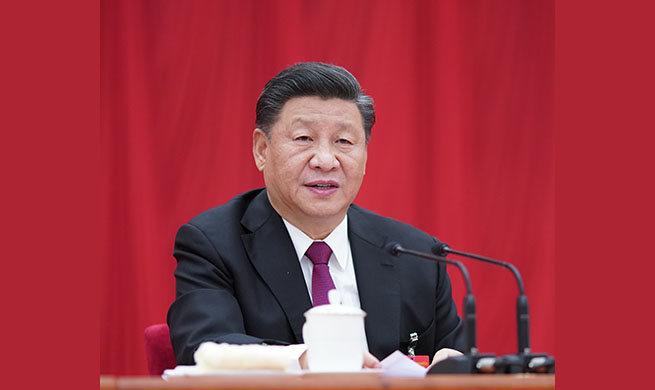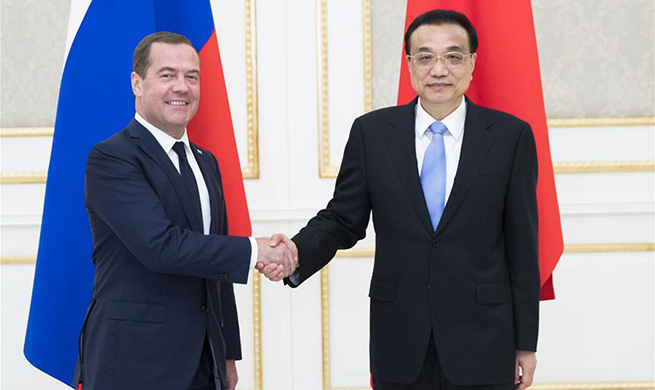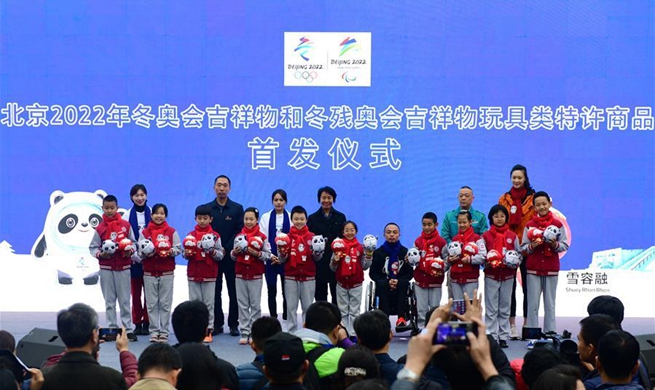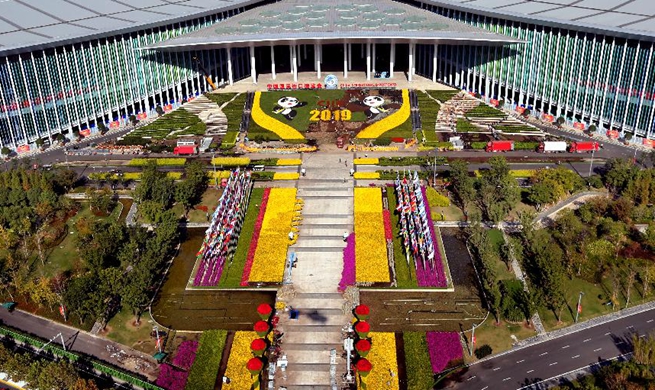BEIJING, Nov. 2 (Xinhua) -- After years of development, the Shanghai Cooperation Organization (SCO) has much to offer for the improvement of global governance, an expert said in an interview with Xinhua.
The development experience of the SCO can be "a prescription" to the global governance conundrum, said Deng Hao, secretary general of the China Center for SCO Studies, before the 18th meeting of the Council of Heads of Government of the SCO in the Uzbek capital Tashkent.
Founded in 2001 by China, Kazakhstan, Kyrgyzstan, Russia, Tajikistan and Uzbekistan and later expanded to eight member states, four observer states and six dialogue partners, the SCO has become a comprehensive regional organization covering the largest area and population in the world 18 years after its inception.
The organization has set an example for building a new type of international relations featuring mutual respect, fairness and justice, and win-win cooperation by following the principles of equality, respecting sovereign and territorial integrity, non-interference in internal affairs of other states and maintaining non-alliance, non-confrontation and not targeting any third party, he said.
Deng attributed the success of SCO to the proposal and implementation of the "Shanghai Spirit," which champions mutual trust, mutual benefit, equality, consultation, respect for diverse civilizations and pursuit of common development.
"The Shanghai Spirit advocates new security, cooperation and civilization concepts, overturns and surpasses the Cold War mentality, zero-sum games and clash of civilizations, and points a new way to global governance, which is of great practical significance to establishing a more democratic and just international political and economic order," he said.
In line with the Shanghai Spirit, the organization formulated the SCO Charter and the Treaty on Long-Term Good-Neighborliness, Friendship and Cooperation of the SCO Member States.
"The two documents not only set the guideline of SCO's fundamental policies but also contribute wisdom to regional and global governance," Deng said.
He noted that the main goals for this year's meeting are to ensure the implementation of results achieved in the last Bishkek SCO summits in June and push forward the development of cooperations on all fronts.
The next five to ten years are "the key phase" and "a window of opportunity" for SCO member states' development and rejuvenation and the building of an SCO community with a shared future, Deng said.
He called for the establishment of a regional cooperation platform based on rules and a pragmatic and efficient investment and financing system.
"Member states of the SCO should strengthen strategic communication to bolster understandings and trust in seek of the 'greatest common divisor' for cooperations," Deng said, adding that the SCO should deepen connections with international organizations such as the United Nations to play a bigger role in global governance.

















